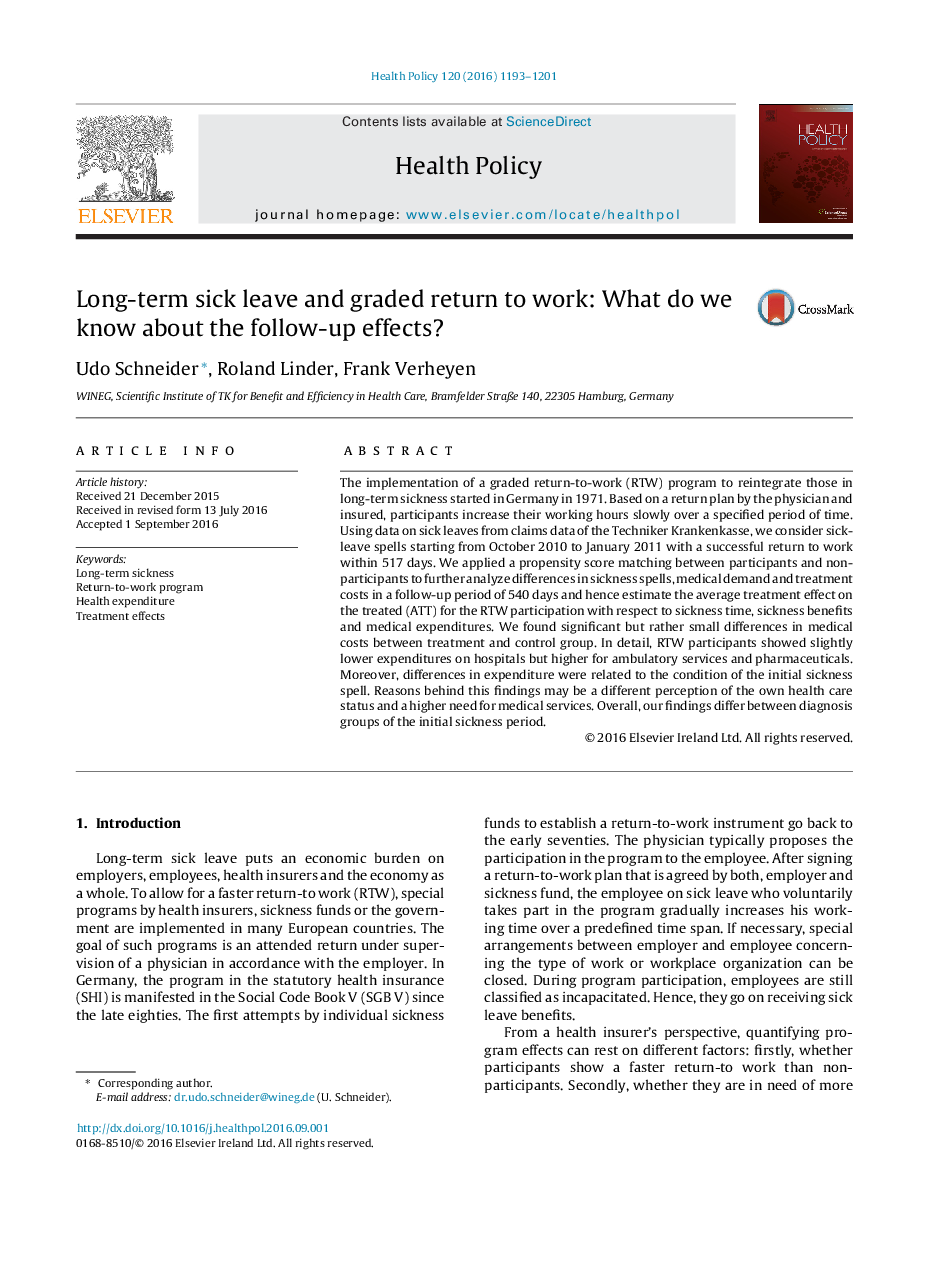| کد مقاله | کد نشریه | سال انتشار | مقاله انگلیسی | نسخه تمام متن |
|---|---|---|---|---|
| 5723398 | 1411447 | 2016 | 9 صفحه PDF | دانلود رایگان |
- We analyzed differences in outcome variables between participants and non-participants of the German RTW program after returning to work.
- We found significant but rather small differences in selected medical expenditures with higher expenditures for participants than for non-participants.
- Reasons behind these differences in outcome variables may represent different perceptions of the own health care status and higher needs for medical services.
The implementation of a graded return-to-work (RTW) program to reintegrate those in long-term sickness started in Germany in 1971. Based on a return plan by the physician and insured, participants increase their working hours slowly over a specified period of time. Using data on sick leaves from claims data of the Techniker Krankenkasse, we consider sick-leave spells starting from October 2010 to January 2011 with a successful return to work within 517 days. We applied a propensity score matching between participants and non-participants to further analyze differences in sickness spells, medical demand and treatment costs in a follow-up period of 540 days and hence estimate the average treatment effect on the treated (ATT) for the RTW participation with respect to sickness time, sickness benefits and medical expenditures. We found significant but rather small differences in medical costs between treatment and control group. In detail, RTW participants showed slightly lower expenditures on hospitals but higher for ambulatory services and pharmaceuticals. Moreover, differences in expenditure were related to the condition of the initial sickness spell. Reasons behind this findings may be a different perception of the own health care status and a higher need for medical services. Overall, our findings differ between diagnosis groups of the initial sickness period.
Journal: Health Policy - Volume 120, Issue 10, October 2016, Pages 1193-1201
